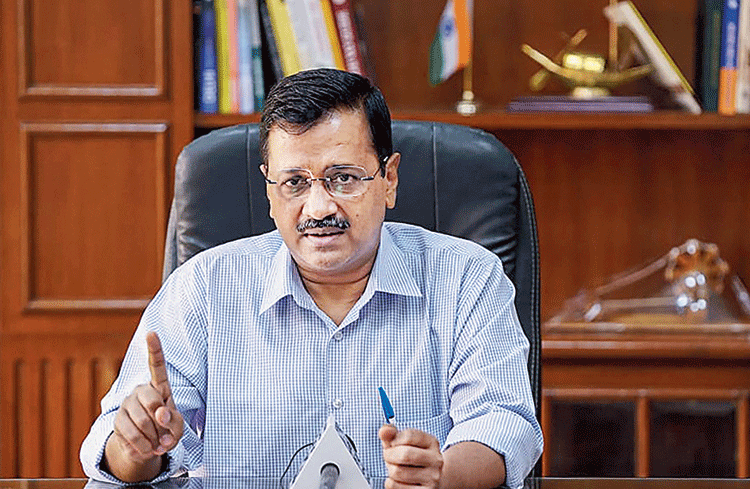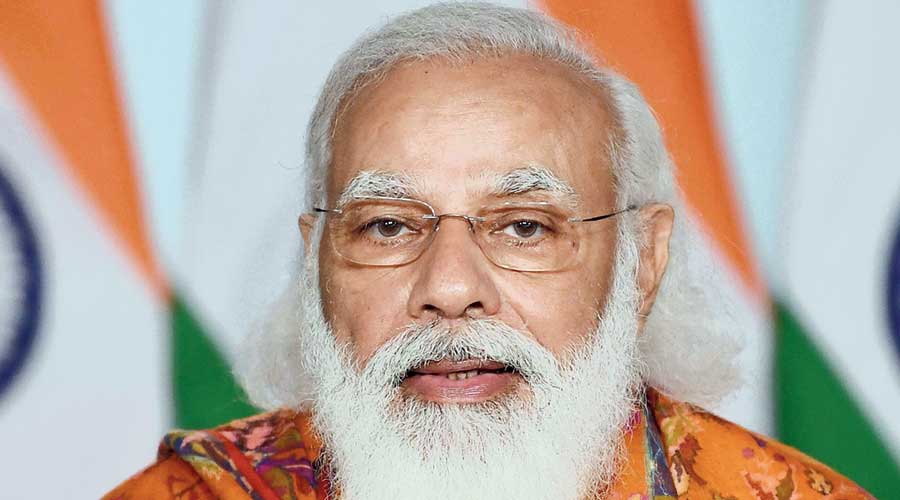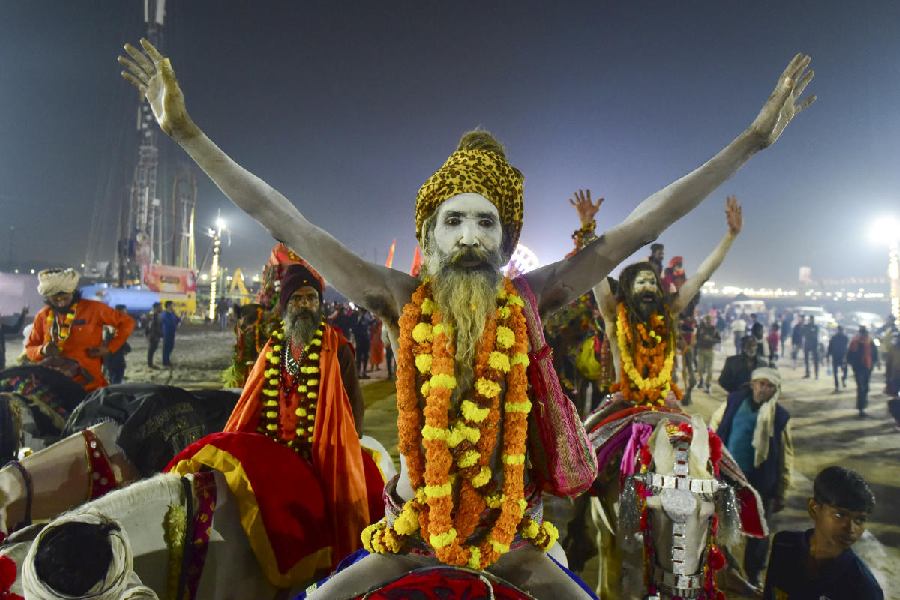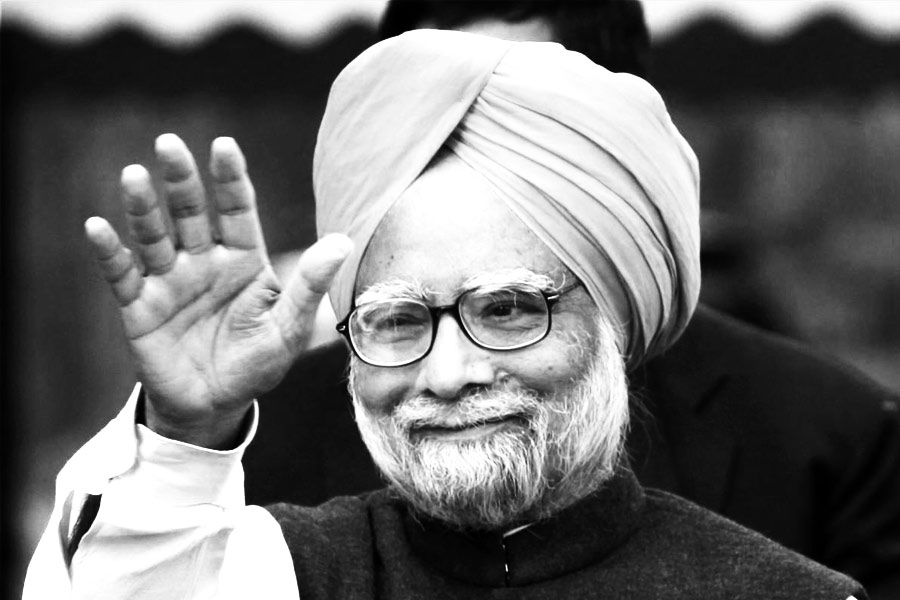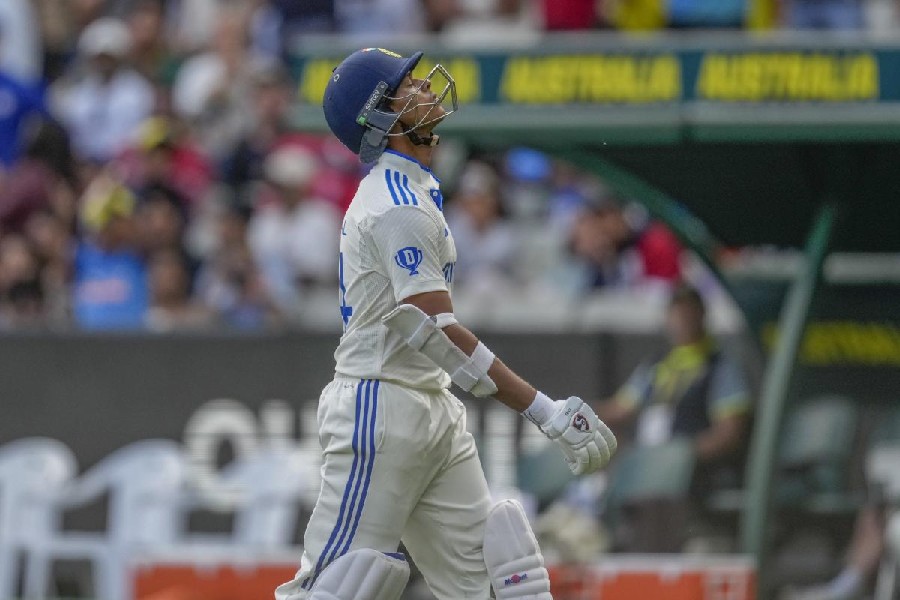The Aam Aadmi Party has been conspicuous by its absence from joint statements of the Opposition parties at the national level this year on Covid-19 and the new farm regime, preferring to be a lone wolf in protests against the Centre and prompting questions on its interest in a consolidation against the ruling dispensation.
Although vocal against the new farm laws as well as the Centre’s handling of the pandemic, the AAP — which runs the Delhi government — has chosen to plough a lonely furrow rather than be part of the Opposition’s unity efforts.
General secretaries of the CPM and the CPI — national parties that are supportive of the AAP — have last month publicly questioned Arvind Kejriwal’s party’s silence on an Opposition axis.
When the AAP had vehemently opposed the downgrading of the Delhi government’s powers by a central legislation in March, most Opposition parties had closed ranks behind it.
However, the AAP, which had earlier been accused of pursuing the Hindutva agenda and siding with the Centre on key issues, has remained silent on the new Union government-appointed administrator’s controversial decisions in Lakshadweep.
Most Opposition parties have slammed administrator Praful Khoda Patel’s alleged attempts to impose a “Sangh parivar” agenda on the Muslim-majority archipelago. Several MPs have written to the President and a united Opposition is preparing a mass petition to Ram Nath Kovind for the administrator’s recall. There have been fears that Lakshadweep is being turned into “another Kashmir”.
In 2019, the AAP had supported the Centre’s decision to scrap Jammu and Kashmir’s special status and its bifurcation into two Union Territories.
This time, the AAP has not uttered a word on the CBI’s action on Trinamul Congress leaders, including two ministers, and the Centre’s other alleged disruptive measures in Bengal after the BJP bit the dust in the Assembly elections. Last Monday, Kejriwal offered a guarded disapproval of Bengal chief secretary Alapan Bandyopadhyay’s transfer on Twitter, without naming him.
This despite the Trinamul Congress sending its MPs for the debate in the Rajya Sabha on the Delhi power rejig despite the frenetic election campaign in Bengal in March.
Many Opposition parties have slammed the CBI action in the Narada case, accusing the Centre of misusing the investigation agency for political vendetta.
Asked, an AAP senior leader denied ever being approached to be a part of the Opposition consolidation last month, putting the onus on the Congress to bring together the forces.
“I am unaware of any attempts by the Congress to bring us on board... You need not worry about our stand as we were and always will be secular. In Parliament, we have cooperated with other Opposition parties. Outside, we will continue to speak up on issues that affect the public even if we stand alone,” he told The Telegraph, preferring anonymity.
However, an AAP strategist claimed that the party did not see any political value in “signing statements”.
He said: “People don’t care about joint statements. The BSP (Bahujan Samaj Party), for example, chooses to sign some statements and not sign others depending on its convenience on that day. That’s simply because there is not any political mileage to be gained from statements….
“During the pandemic, we have focused on policy and not politics as citizens want to see a government that works and a party that takes up their problems, and not merely fights the BJP.”
He said the AAP’s current focus was restricted to wresting power from the BJP in all three municipal corporations of the capital next year — which would dismantle any threat to its continuance as the pre-eminent party of Delhi.
The AAP is keen to hold on to the status of the party that has the leader of the Opposition in Punjab. Surveys conducted by the AAP give it a fighting chance at debuting in the Assemblies of Uttarakhand, Uttar Pradesh and Goa — all of which go to polls early next year.
Besides Punjab, all the other states are ruled by the BJP.
However, the AAP sees its vote bank in Congress voters.
“If we want to be a regional leader, we can’t stand with the parties we seek to displace. The Congress has to be our enemy number one. Our success in the Uttar Pradesh panchayat polls has come at the expense of the Congress,” the AAP strategist said.
“Muslims are disappointed with us after the Delhi riots but we will win them back not by pandering to them like the Congress or the Samajwadi Party, but by establishing ourselves as the strongest anti-BJP force,” the strategist added.
The AAP recently drew flak for targeting the Centre on vaccine exports by emphasising on the allocation to Muslim countries.
“The centrist BJP voter can vote for the AAP if we project ourselves as an alternative. We won’t waste our political capital speaking about issues from which we have nothing to gain, like Lakshadweep or the Bengal violence,” the strategist said.
An AAP fundraiser recently pointed out that he who pays the piper calls the tune.
“Even donors are keen that we emerge as a national alternative. Our regular donors are hard-pressed as most of them have devoted funds for Covid relief. But in Uttarakhand for example, a prominent donor of the BJP has offered to fund us if we emerge as an alternative to the BJP and the Congress,” the strategist said.
“That can’t happen with Opposition unity. Kejriwal’s national ambitions in the long term can be realised only if we break the Congress in these key states and Gujarat, where too we got traction in the municipal polls,” the strategist added.

